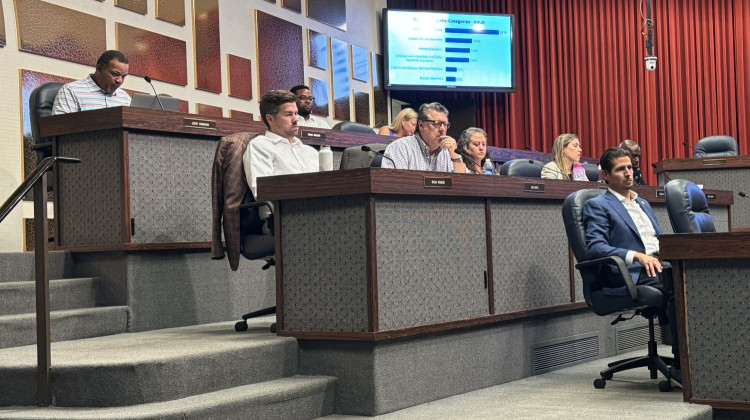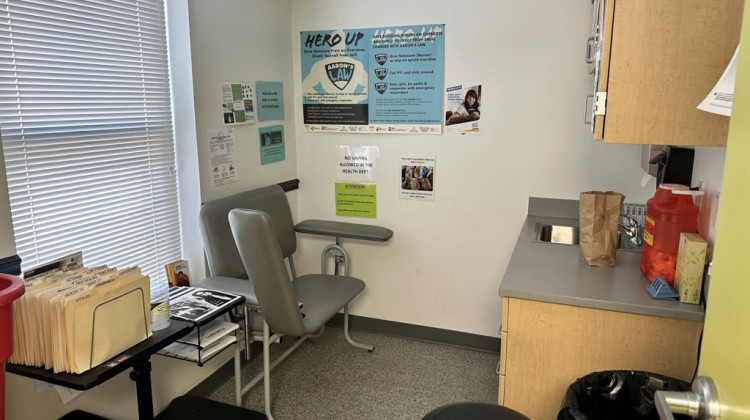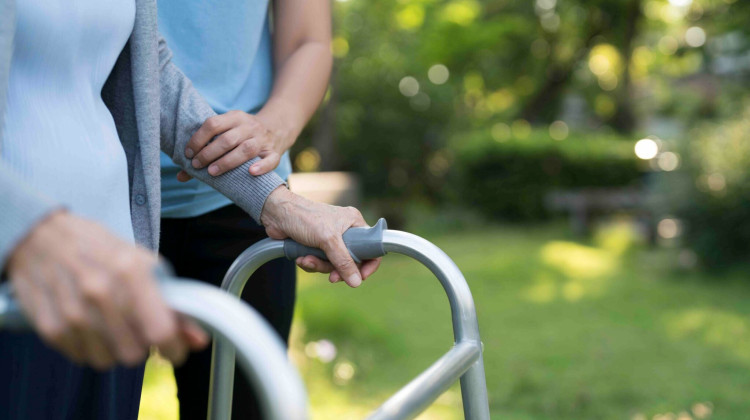
Counselors ask questions about programs to address mental health issues during a committee meeting on Wednesday, Aug. 28, 2024.
Elizabeth Gabriel / WFYI NewsMarion County’s mental health centers announced a 35% increase in the number of people served since 2018. During a recent Indianapolis’ City-County Council committee meeting, councilors discussed the how these increased mental health services impacted the budget.
Marion County has four community mental health centers — organizations that have been credentialed by the state to provide low-cost care to people who can't afford it. That includes crisis intervention, detoxification and case management. The centers have served over 61,000 people over the past year — roughly 16,000 more people than last year.
But providing more charity care cost the county $29 million for the 2024 fiscal year, according to a presentation shown during the committee meeting. That’s an increase from about $23 million last year.
Christine Negendank, the president and chief medical officer for Adult and Child Health, said there are many more residents out there who still need help.
“One thing I appreciate about all of the centers is we are very passionate about serving as many lives as possible,” Negendank said.
Research shows that nearly two-thirds of serious mental health needs are unmet in Marion County.
The mental health centers work together with providers to make sure patients receive wraparound services, such as housing. Negendank said 38% of patients experience residential Instability and 29% are involved with the legal system. But she believes addressing someone's housing needs will also support their mental health.
“I learned early on that if someone is having housing instability, that's their whole focus,” Negendank said. “They can't engage in therapy, they don't care to take medicines, because that's the least [pressing] thing on their plate. So, we really work to get people housed in safe environments.”
During the City-County Council meeting, District 20 Councilor Michael-Paul Hart asked if residents should be concerned about experiencing violence from people with schizophrenia, particularly those who are unhoused. Negendank said people experiencing a mental health episode typically don’t attack bystanders.
“Individuals with severe mental illness are more likely to be victimized,” Negendank said. “It's actually a very low number who are involved in the legal system or we worry about [them assaulting someone] or anything like that.”
Before the meeting ended, District 3 Councilor Dan Boots said the group has done a good job at addressing the county's mental health crisis.
“From my tenure on the council, I've seen great strides from where we were in 2019 and 2020 to where we are today,” Boots said. “That's very encouraging. I would love to see the day where anybody, 24/7 in any county, could have a non-[law enforcement] clinician-led team knock on your door and solve your crisis. Keep up the good work.”
Contact WFYI’s health reporter Elizabeth Gabriel at egabriel@wfyi.org
Side Effects Public Media is a health reporting collaboration based at WFYI in Indianapolis. We partner with NPR stations across the Midwest and surrounding areas — including KBIA and KCUR in Missouri, Iowa Public Radio, Ideastream in Ohio and WFPL in Kentucky.
 DONATE
DONATE






 Support WFYI. We can't do it without you.
Support WFYI. We can't do it without you.